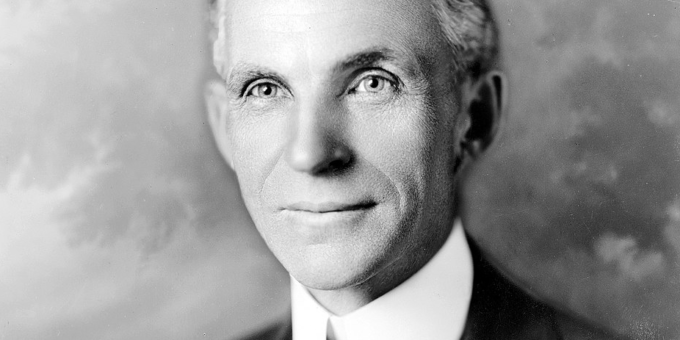
Henry Ford was one of the most influential people in the automotive industry. He is also one of the most controversial figures in history because he was a supporter of Hitler and his company helped to fuel the Nazi war machine.
Ford’s father, William Crapo, died in 1879, when Henry was not yet two years old. Henry’s mother, Mary Litogot Ford, had a difficult time trying to make ends meet and support her two children by herself. She took in sewing and taught school to earn money for food and rent.
Henry Ford’s childhood consisted of a lot of hard work on his mother’s farm and he didn’t have much formal education because they couldn’t afford it. He never attended high school or college.
After the death of his mother, Henry left home to live with an aunt and uncle. He then attended school in San Francisco, where he met John Muir, a well-known naturalist. Muir had a formative influence on Henry’s life and helped him develop an interest in nature.
Ford’s First Car — The Model T
The Ford Model T is a car that was produced by the Ford Motor Company from October 1, 1908, to May 27, 1927. It is generally regarded as the first affordable automobile, the car that opened travel to the common middle-class American; some of this was because of Ford’s efficient manufacturing from assembly lines.
The Model T began production on October 1st, 1908 and was sold for $825. This price made it possible for many Americans to purchase an automobile. The Model T had a top speed of 45 miles per hour and could go up to 90 miles on a single tank of gas.
Ford and World War II
The United States had just come out of World War I, and there was a big push to make sure that America was prepared for another war with Germany. Henry Ford collaborated with other industrialists to fund this effort, which became known as the Liberty League.
World War II began on September 1, 1939.
Grand Cross of the German Eagle
But before the war broke out, it was widely publicized that Chancellor Adolf Hitler awarded Henry Ford the grand Cross of the German Eagle. This was the highest decoration a foreigner could receive.
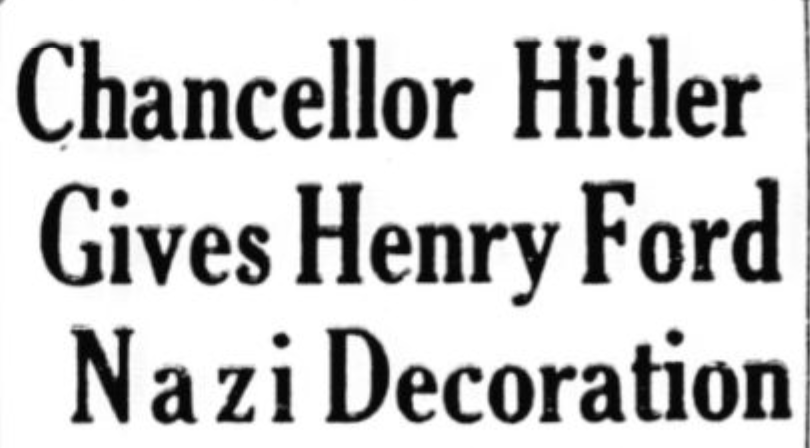
Naturally, this caused quite a stir, and the Nazis were accused of running their propaganda machine full-time.
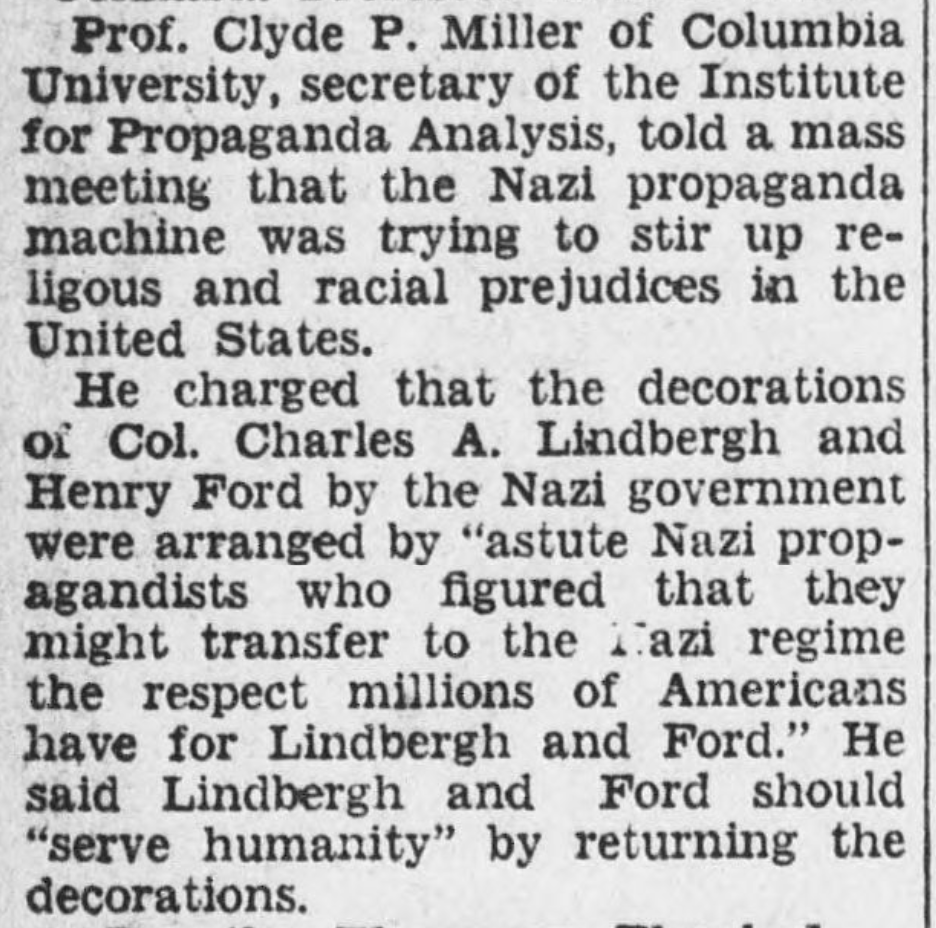
U.S. Jewish war vets were also angry over Henry Ford’s flirtatious dealing with the Nazi regime.
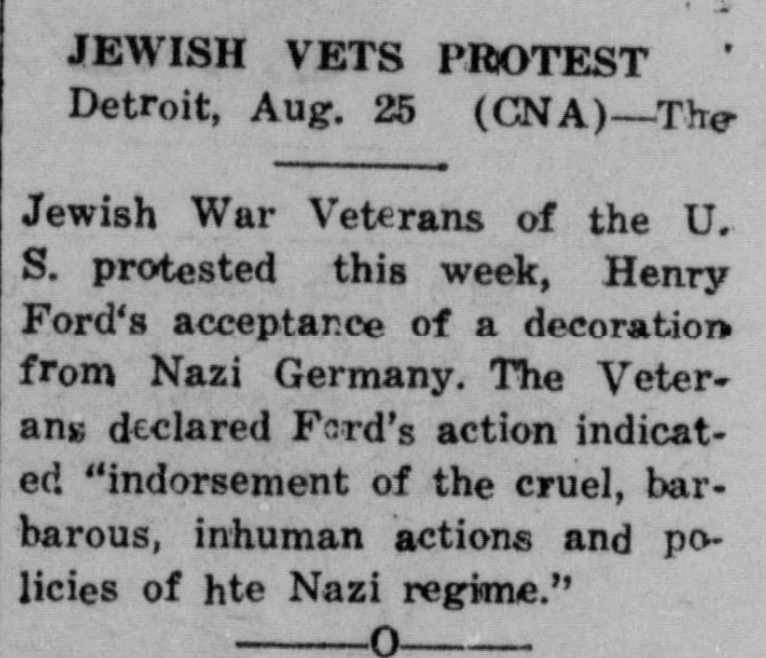
Backpedaling
Henry Ford faced numerous accusations of being a Nazi sympathizer and newspapers across the United States both chastised Ford and celebrated him.
Ford also had his men downplay the wholesale murder of Jews happening in Germany.

His own propaganda payed in much the same way we see today with certain segments of the U.S. population believing that Russia’s Putin is somehow justified in his actions to start wars, bomb hospitals, and murder citizens of other countries.
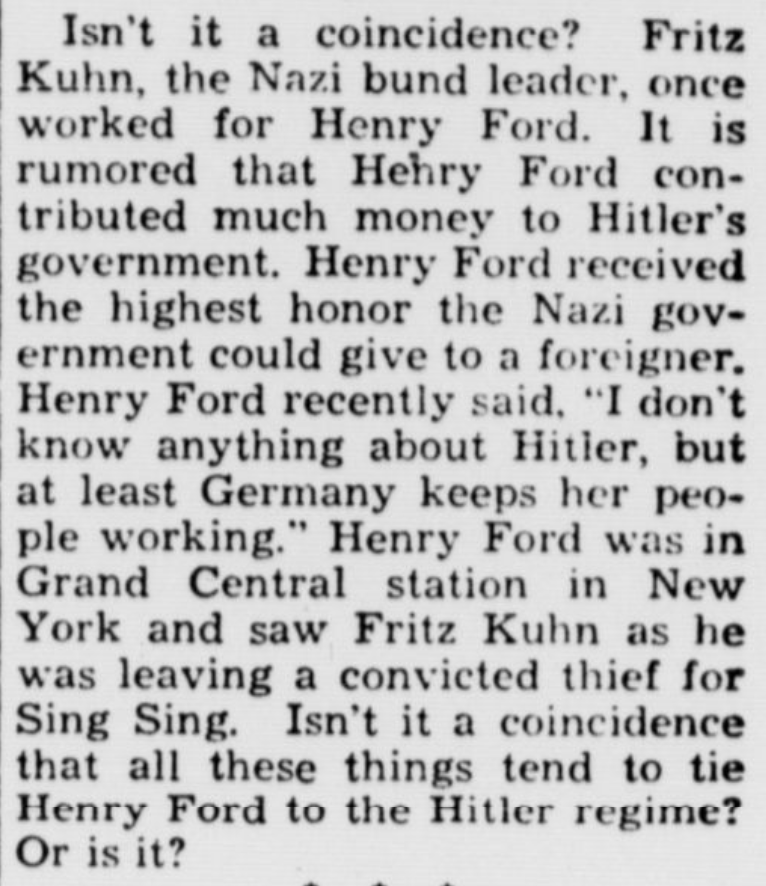
Monetary Benefits of the War
In 1941, there were numerous cries for Henry Ford to renounce the Nazis and to end his anti-Semitism.
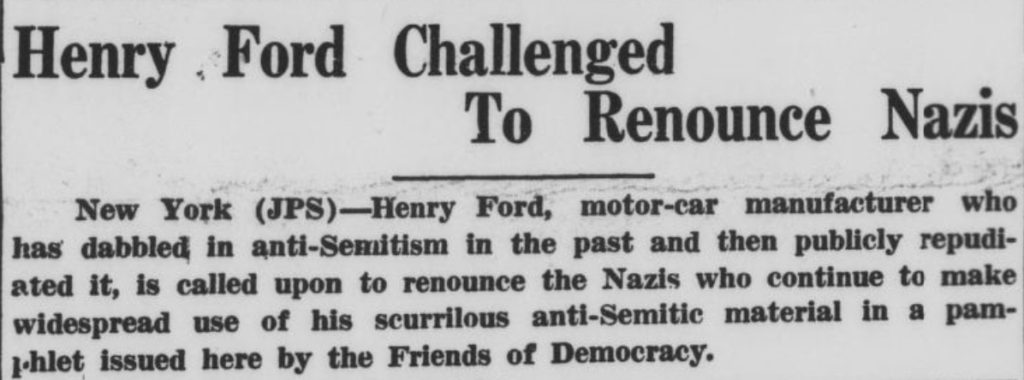
Although Ford supported Hitler’s beliefs, Henry Ford did go on to make a fortune building tanks, airplanes, and trucks for the Allied war efforts.
Recommended Books
To learn more about Henry Ford, America’s Corporations, and the Nazi regime, I recommend the following books:
Nazi Nexus: America’s Corporate Connections to Hitler’s Holocaust by Edwin Black.
The American Axis: Henry Ford, Charles Lindbergh, and the Rise of the Third Reich by Max Wallace.
Wall Street and the Rise of Hitler by Antony C. Sutton.
Hitler’s American Model: The United States and the Making of Nazi Race Law by James Q. Whitman.
Newspaper Sources:
The times-news. (Hendersonville, N.C.), 30 July 1938.
The Waterbury Democrat. (Waterbury, Conn.), 16 Nov. 1938.
The Omaha guide. (Omaha, Neb.), 27 Aug. 1938.
The Waterbury Democrat. (Waterbury, Conn.), 05 Dec. 1938.
The Southern Jewish weekly. (Jacksonville, Fla.), 25 July 1941.

